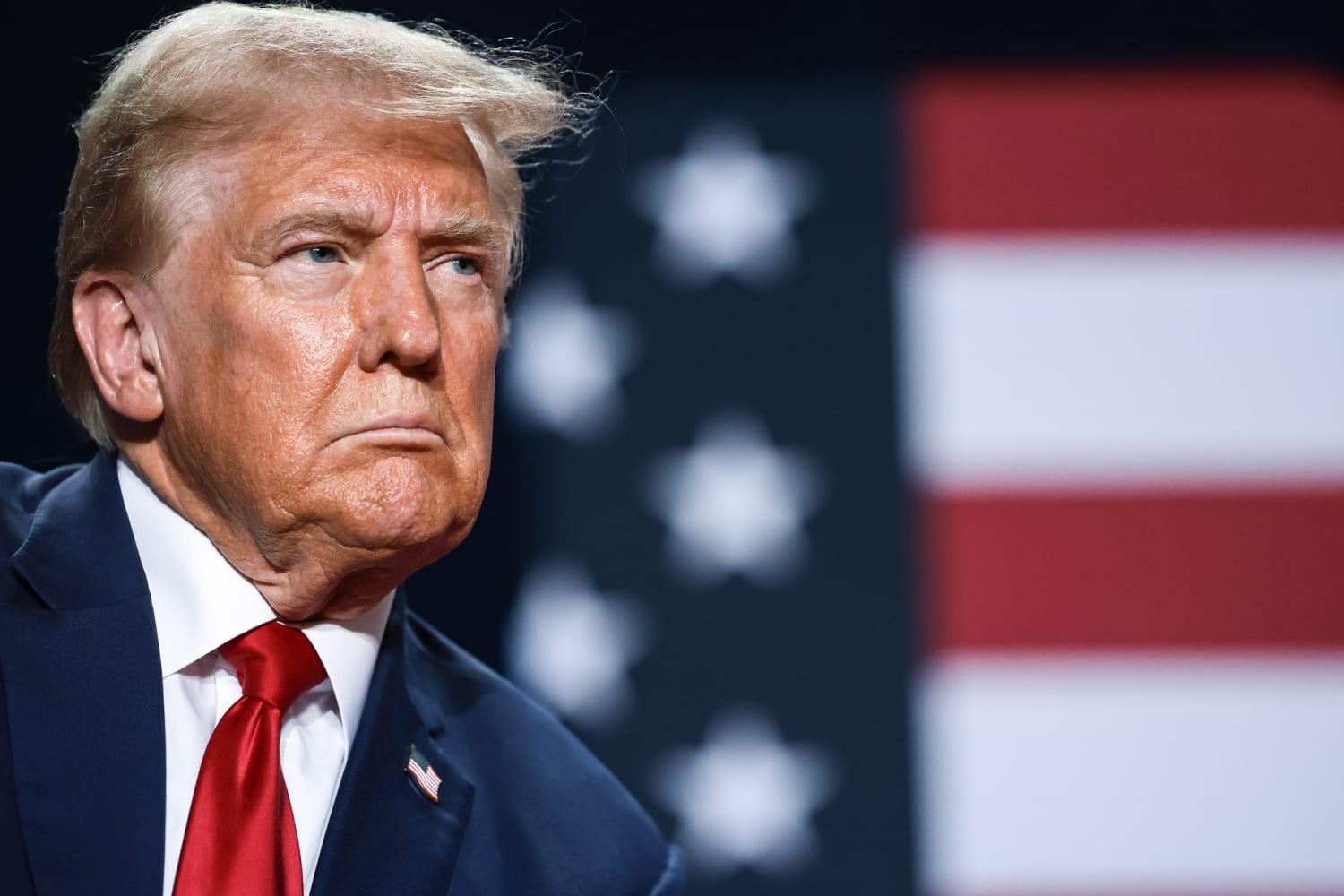The Saudis are furious. The Danes are scrambling. Colombia has backed down. Mexico and Canada stand in a purgatory between tariff wars with the US and … not. China has retaliated, launching a trade war between the economic superpowers. The Brits, long proud of their “special relationship” with the United States, are leaning into their tradition of quiet diplomacy.
It’s as if President Donald Trump has flung a bag of marbles across the global stage, under the feet of foreign leaders who have often stepped together through eight decades of postwar global order.
Everyone, it seems, is responding to Trump — even Australia’s leader, when asked last week for his thoughts only a few hours after Trump announced the US would “take over” the decimated Gaza Strip and turn it into the “Riviera of the Middle East.”
“I’m not going to, as Australia’s Prime Minister, give a daily commentary on statements by the U.S. President,” Anthony Albanese told reporters.
Acknowledged publicly or not, world leaders are watching Trump’s wood-chipper approach to some American government institutions and wondering about those of the post-Cold War order: What of the U.S. roles in NATO, the United Nations, the World Bank and other pillars of the international order? On U.S.-controlled NATO, Trump has long questioned the value of the pact and threatened not to defend members of the alliance that fail to meet defense-spending goals. On his first day back in the Oval Office, Trump began to pull the United States out of the World Health Organization for the second time, an act that would leave the U.N. agency without its biggest donor. WHO’s leaders huddled over a response and asked diplomats to lean on Washington to reverse Trump’s decision. A German envoy worried: “The roof is on fire.” “Trump’s actions portend a permanent shift in the landscape — not just a switch that flips back in four years’ time,” wrote Heather Hurlburt, a political and international affairs expert with Chatham House, a think tank in London.
Outside of leadership circles, anyone who depends on U.S. aid for food and medicine is coming to grips with the life-and-death implications of not having it after Trump’s drive to dismantle USAID and its six-decade mission to stabilize countries by providing humanitarian aid. The Vatican charity voiced outrage Monday at what it called “unhuman” U.S. plans to gut USAID.
“We’re waiting for the decisions, but we are not very, I would say, optimistic,” said Arjana Qosaj Mustafa of the Kosovo Women’s Network, an umbrella group of 140 NGOs. “But nevertheless, we are resilient. So we’ll try to do our best.”
Emboldened by his reelection and with help from presidential friend Elon Musk, Trump has unleashed his signature chaos by distraction on the world.
A story of ‘flooding the zone’ and examples set
Presidential orders and utterances — he’s suggested annexing Canada and taking over the Panama Canal — occur at a speed that can atomize opposition. No one person or government can keep track of them all. And that, rather than clarity, is the effect of what Trump’s allies call “flooding the zone.”
Got a problem with it? Trump has an answer: “Fafo,” short for “mess around and find out,” except the first word isn’t “mess.” The President posted the acronym on social media, complete with a photo of him in a fedora and pinstripes.
Ask Colombia what happens when you say no to Trump. Its President briefly resisted planeloads of immigrants during Trump’s first week — until the 47th U.S. President threatened the country with as much as a 50% hike in tariffs. Colombia accepted the immigrants. Boom, example set.
The enforcement technique has long delighted Trump’s supporters, who turned out for him during the 2024 election heavily influenced by their anxiety over the economy and their own finances, according to APVotecast. Trump says he’s trying to save taxpayer money and spend it on issues that align with American interests.
Take Greenland and the Gaza Strip. The isolationist, “America first” President says the U.S. will do so. He eventually ruled out using the military to move Gaza’s 2 million people elsewhere, but his plan to develop the seaside enclave into a luxury resort apparently stands.
Never mind that friends and foes alike, from the volatile Mideast to China and the staid UK, have cast the idea as a nonstarter. Powerful Saudi Arabia issued an “absolute rejection” of it. Or that it could jeopardize the fragile hostages-for-prisoners ceasefire in the Israel-Hamas war, Egypt’s peace deal with Israel. It could violate international law, too.
Also, Palestinians streaming back to what once were their homes after 15 months of relentless air raids overwhelmingly say they’re not leaving. But Trump’s plan has found support in Israel, with leaders there taking care to say leaving would be “voluntary” rather than forced expulsion, which would be a war crime.
World leaders scramble to lead
“We are not a bad ally,” Danish Prime Minister Mette Frederiksen found it necessary to tell reporters last week, like other leaders on their heels as they respond to the Trump administration.
In this case, according to the Copenhagen Post, Frederiksen was responding to comments by Vice President JD Vance on Fox News’ “Sunday Morning Futures,” that the EU and NATO member nation was “not being a good ally.” He repeated that an American acquisition of Greenland was “possible.”
That came after Frederiksen had flown to European capitals last month to urge other countries on the continent to respond with one voice against Trump’s vow to make Greenland part of the United States. Denmark also has legislation to crack down on racism toward Greenlanders and has sent $2 billion to the Arctic island for its security.
Federiksen also shared a photo on Facebook Jan. 26 of European leaders dining at her home, with the caption: “We have always stood together in the Nordic countries. And with the new and more unpredictable reality in which we are facing, good and close alliances and friendships have only become more important.”
The sentiment is spreading to larger groups. A recent meeting of EU leaders in Brussels that was supposed to be about boosting defense against the Russian threat became very much about Trump.
“We have to do everything to avoid this totally unnecessary and stupid tariff war or trade war,” Polish Prime Minister Donald Tusk told reporters. He said Trump’s threats of tariffs on the EU amount to “a serious test” of European unity, and “It’s the first time where we have such a problem among allies.” Europe’s leaders said they were going to wait to see the details of what Trump is proposing.
In Greenland, meanwhile, Trump’s remarks have fueled a generational fight for full independence from Denmark and become a key issue ahead of elections in March. Some of its leaders have said the world’s largest island, home to 57,000 people, doesn’t want to be part of the United States or Denmark.
“The unfortunate rhetoric has caused a lot of worry and concern not only in Greenland but the rest of the Western Alliance,” Naaja H. Nathanielsen, Greenland’s Minister of Business and Trade, told The Associated Press.
The feelings are not, however, unanimous. Europe’s far-right leaders applauded Trump’s agenda at a rally Saturday in Madrid under the banner, “Make Europe Great Again.” Those gathered included Hungarian Prime Minister Viktor Orban, Italy’s Deputy Premier Matteo Salvini, French National Rally party leader Marine Le Pen and others.
Some leaders downplayed Trump’s threat to hike tariffs on European imports, saying that the EU’s taxes and regulations pose bigger dangers to the region’s prosperity. But every speaker touched on illegal immigration, as painful and divisive in Europe as it is in the United States.
Le Pen said the Patriots for Europe group had the best chance of working with Trump. “We,” Le Pen said, “are the only ones that can talk with the new Trump administration.”
___
Republished with permission of The Associated Press.
Post Views: 0

 Entertainment8 years ago
Entertainment8 years ago
 Entertainment8 years ago
Entertainment8 years ago
 Politics8 years ago
Politics8 years ago
 Tech8 years ago
Tech8 years ago
 Tech8 years ago
Tech8 years ago
 Tech8 years ago
Tech8 years ago
 Politics8 years ago
Politics8 years ago
 Tech8 years ago
Tech8 years ago











